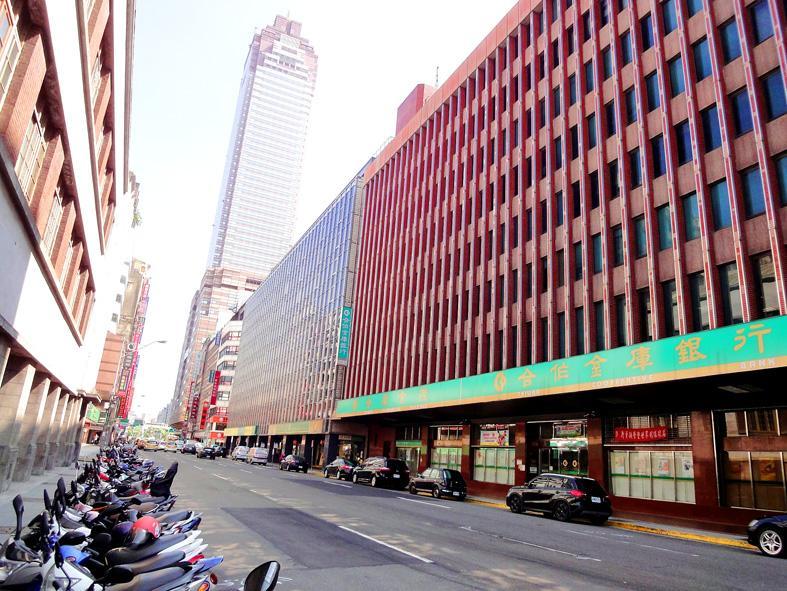State-run Taiwan Cooperative Financial Holding Co (合庫金控) yesterday said it would keep its loan growth target of 7 percent for this year, even though its first-half growth lagged far behind its ambition.
The banking-focused conglomerate’s outstanding loans rose 2.42 percent in the first six months of this year, with lending to small and medium-sized enterprises expanding 3.56 percent and loans to retail customers gaining 4.51 percent, it told an online investors’ conference.
However, the conglomerate said it is unnecessary to revise the target because loan demand is expected to pick up if unfavorable factors ease, such as Russia’s invasion of Ukraine.

Photo: Lu Kuan-cheng, Taipei Times
Momentum would also improve if global inflationary pressure mitigates and the domestic COVID-19 situation improves, it said.
Interest spread and net interest income are forecast to increase on the back of further monetary tightening, Taiwan Cooperative president Chen Mei-tsu (陳美足) said.
The conglomerate’s net income for the first six months totaled NT$9.34 billion (US$311.43 million), down 8.35 percent year-on-year due its financial assets losing value.
Earnings per share were NT$0.64 for the first six months, less than NT$0.7 in the same period a year earlier.
The conglomerate’s net worth shrank 14 percent annually, corporate data showed.
Local shares account for 3 percent of Taiwan Cooperative’s investments, it said, adding that it favors high-dividend stocks, but would adopt a cautious approach amid concerns over market volatility.
The conglomerate’s total net fee income increased 1.35 percent, while income from wealth management operations fell 10.27 percent and income from its credit card business slumped 40.98 percent because market corrections chilled investment interest and a surge in COVID-19 cases curbed consumer spending, it said.
Private consumption regained momentum this quarter, as the government eased COVID-19 control measures amid an approach to “live with the virus,” it said.
The property market, a key source of retail banking, could see resilient housing prices and lackluster transactions for the rest of this year, Taiwan Cooperative officials said.
Developers are expected to keep their pricing policies given rising construction costs, but buyers would turn conservative given monetary tightening and an economic slowdown, the officials said.
Taiwan Cooperative would press ahead with expansions in overseas markets that are expected to generate higher margins, they said.
Its overseas and offshore banking operations contributed 35.32 percent to this year’s earnings as of June, compared with 28.7 percent at the end of last year, corporate data showed.
Banking operations in Cambodia were the conglomerate’s second-most profitable overseas operations, the officials said, adding that it is planning to open branches in central Europe.

MULTIFACETED: A task force has analyzed possible scenarios and created responses to assist domestic industries in dealing with US tariffs, the economics minister said The Executive Yuan is tomorrow to announce countermeasures to US President Donald Trump’s planned reciprocal tariffs, although the details of the plan would not be made public until Monday next week, Minister of Economic Affairs J.W. Kuo (郭智輝) said yesterday. The Cabinet established an economic and trade task force in November last year to deal with US trade and tariff related issues, Kuo told reporters outside the legislature in Taipei. The task force has been analyzing and evaluating all kinds of scenarios to identify suitable responses and determine how best to assist domestic industries in managing the effects of Trump’s tariffs, he

TIGHT-LIPPED: UMC said it had no merger plans at the moment, after Nikkei Asia reported that the firm and GlobalFoundries were considering restarting merger talks United Microelectronics Corp (UMC, 聯電), the world’s No. 4 contract chipmaker, yesterday launched a new US$5 billion 12-inch chip factory in Singapore as part of its latest effort to diversify its manufacturing footprint amid growing geopolitical risks. The new factory, adjacent to UMC’s existing Singapore fab in the Pasir Res Wafer Fab Park, is scheduled to enter volume production next year, utilizing mature 22-nanometer and 28-nanometer process technologies, UMC said in a statement. The company plans to invest US$5 billion during the first phase of the new fab, which would have an installed capacity of 30,000 12-inch wafers per month, it said. The

Taiwan’s official purchasing managers’ index (PMI) last month rose 0.2 percentage points to 54.2, in a second consecutive month of expansion, thanks to front-loading demand intended to avoid potential US tariff hikes, the Chung-Hua Institution for Economic Research (CIER, 中華經濟研究院) said yesterday. While short-term demand appeared robust, uncertainties rose due to US President Donald Trump’s unpredictable trade policy, CIER president Lien Hsien-ming (連賢明) told a news conference in Taipei. Taiwan’s economy this year would be characterized by high-level fluctuations and the volatility would be wilder than most expect, Lien said Demand for electronics, particularly semiconductors, continues to benefit from US technology giants’ effort

‘SWASTICAR’: Tesla CEO Elon Musk’s close association with Donald Trump has prompted opponents to brand him a ‘Nazi’ and resulted in a dramatic drop in sales Demonstrators descended on Tesla Inc dealerships across the US, and in Europe and Canada on Saturday to protest company chief Elon Musk, who has amassed extraordinary power as a top adviser to US President Donald Trump. Waving signs with messages such as “Musk is stealing our money” and “Reclaim our country,” the protests largely took place peacefully following fiery episodes of vandalism on Tesla vehicles, dealerships and other facilities in recent weeks that US officials have denounced as terrorism. Hundreds rallied on Saturday outside the Tesla dealership in Manhattan. Some blasted Musk, the world’s richest man, while others demanded the shuttering of his